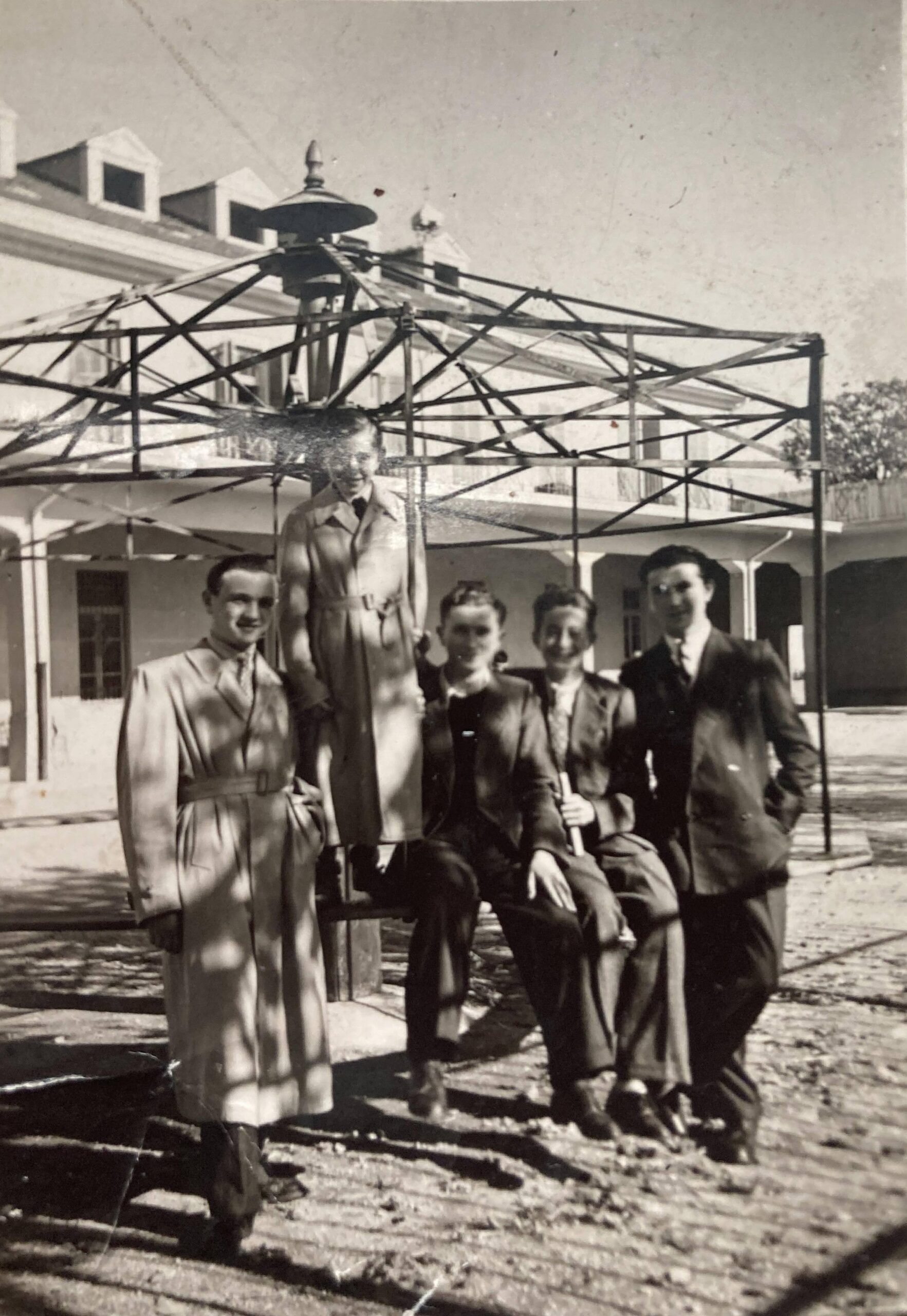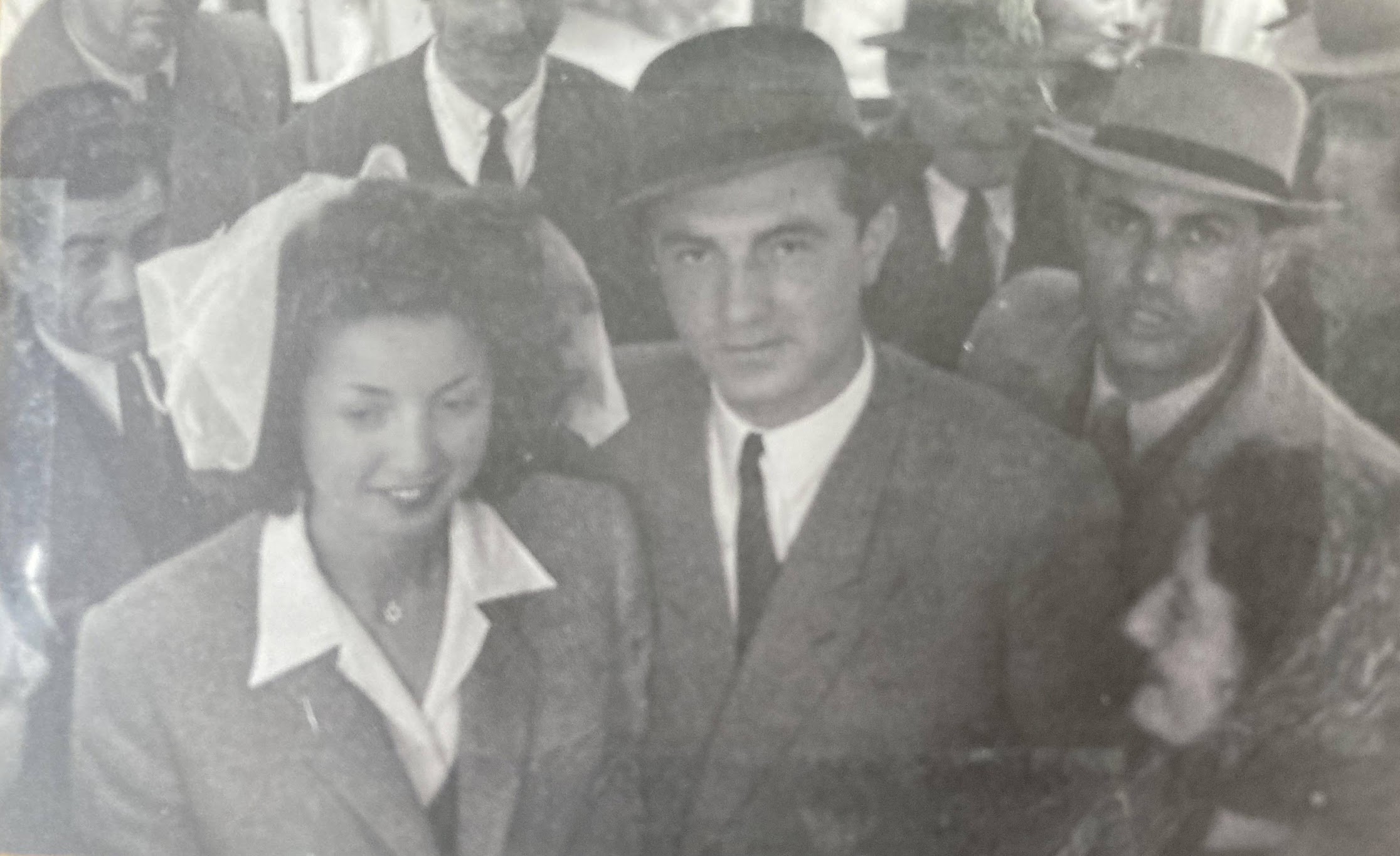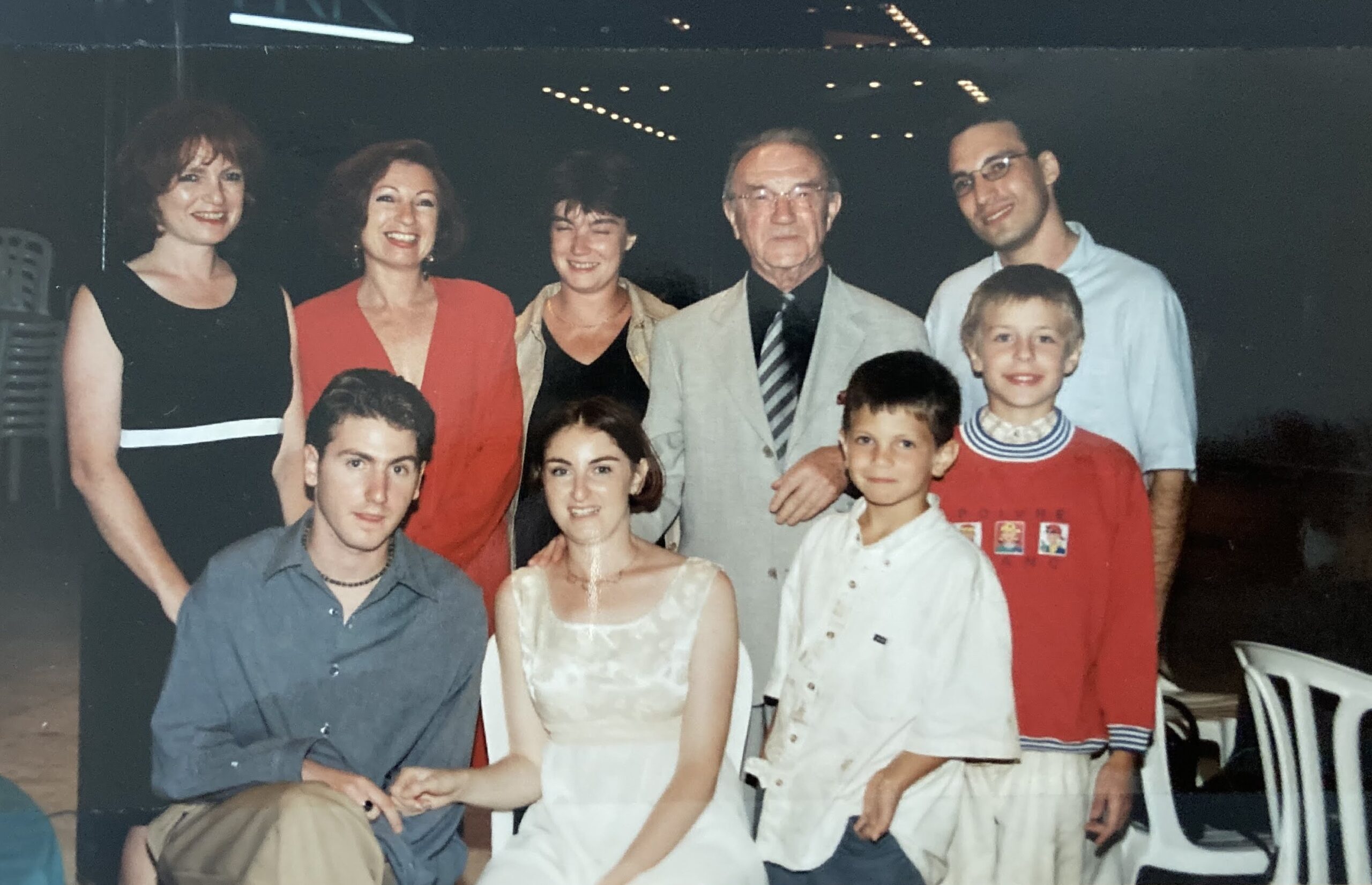I remember the moments when my father Henri Paperman would go back to telling the story of Saint-Martin, the happy summer. I remember his voice, the rising tone, the story of the announcement by Italian officers of the imminent arrival of the Germans after September 8, 1943. Even if I only remember bits and pieces, the odyssey is inscribed in my memory of my father, who died in 2017.
Henri Paperman, his brother Jacques and their father Abraham had moved to Saint Martin Vésubie, along with other Jews from northern France, Madame Scharfman, her children Jacques and Manon, and the Konstadts. Jacques Blum came from Belgium. It was with them that they made the crossing over the Finestra pass. Henri remembers making the climb five times to help the elderly and the very young.
It was in Saint Martin Vésubie that Henri met Clara Heiss, my mother, and that Jacques met his future wife Stella Garbaz, who came from a Pas de Calais family. Clara had arrived from Paris with her mother, her twin sister Adèle, and Cécile, who was already married with a child. Stella, another of their sisters, had been caught up in the Vel d’Hiv round-up. They were later reunited in Rome, where they had arrived in scattered order.
It was thanks to letters from his friends, Jacques Blum and Jacques Scharfman, kept by my father, that I better understood the role of Abraham, my grandfather, in organizing financial aid for people who arrived in Saint Martin with no money. I already knew that he was connected with the Joint (the American Joint Distribution Committee); but I didn’t know that he had added his personal funds to support the soup kitchen financed by the Joint, that he had paid smugglers, greased the palms of an Italian officer who let them pass in the mountains. Thanks to these financial resources, they were able to hold out in the mountains and avoid falling into the trap set by the Germans, in this case a camp supposedly “welcoming refugees” at Borgo San Damazzo. In case they were forced to separate, Abraham had given five gold dollar coins to each of his sons, which they wore in their belts.

Despite the pressure on the Piedmontese not to shelter the Jews, there were enough mountain people to help them. My son Léo remembers the example told by his grandfather Henri, of the Italian peasant woman who gave the starving Jews the polenta she was preparing, with this cult phrase to justify her generosity: “Ebrei, tedeschi… ma siamo tutti Christiani, no?” (“Jews, Germans… we’re all Christians, aren’t we?”).
Henri stayed in Rome for a few months after the arrival of the Allies. He served as an interpreter in the Canadian army. With his brother Jacques, he then moved to Palestine, then under the British Mandate. Clara joined him there. They both returned to France in 1947 before Israel’s declaration of independence.
Patricia Paperman
Patricia Paperman lives in Paris, where she taught sociology at Paris8 University.



Bonjour,
Je trouve à l’instant votre hommage à Henri Paperman.
Je suis très émue.
J’ai écrit un livre sur ma famille paternelle et maternelle. Ma mère, Madeleine Senior (Mado), était la meilleure amie de Clara Hess. Elles se sont connues à l’école Lucien de Hirsch avenue Secrétan. Ma mère a rejoint la famille Hess à Saint-Martin Vésubie et a fui par le col de Fenestre avec Adèle, Clara, Cécile et Charles et Dany et Henri Paperman. Ma mère était réfugiée en Italie, protégée par Cécile et Charles, à Rome. Je possède des photos de cette sombre période, que j’ai incluses dans mon récit.
J’aimerais beaucoup savoir ce que sont devenues les personnes que j’ai connues dans mon enfance et dans mon adolescence.
Vous pouvez me contacter, si vous le souhaitez.
Et j’ajoute que ma mère a vécu à Rome avec Cécile et Charles Szlufman dans le même appartement. Ma mère gardait la petite Dany, lorsque Charles et Cécile étaient en mission. Je raconte et contextualise leur refuge à Rome dans mon livre.
Evelyne